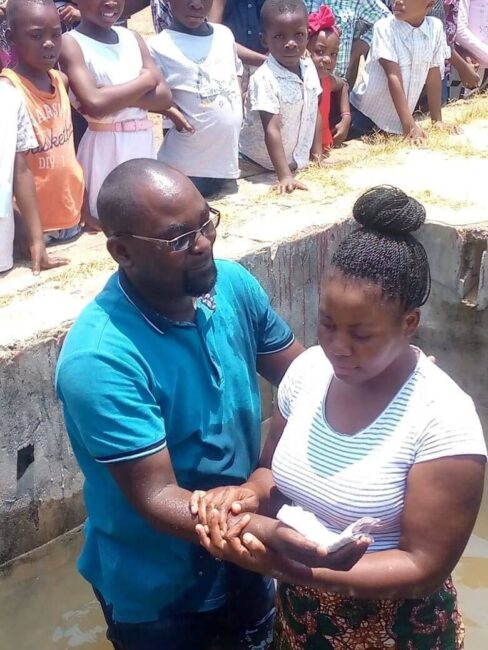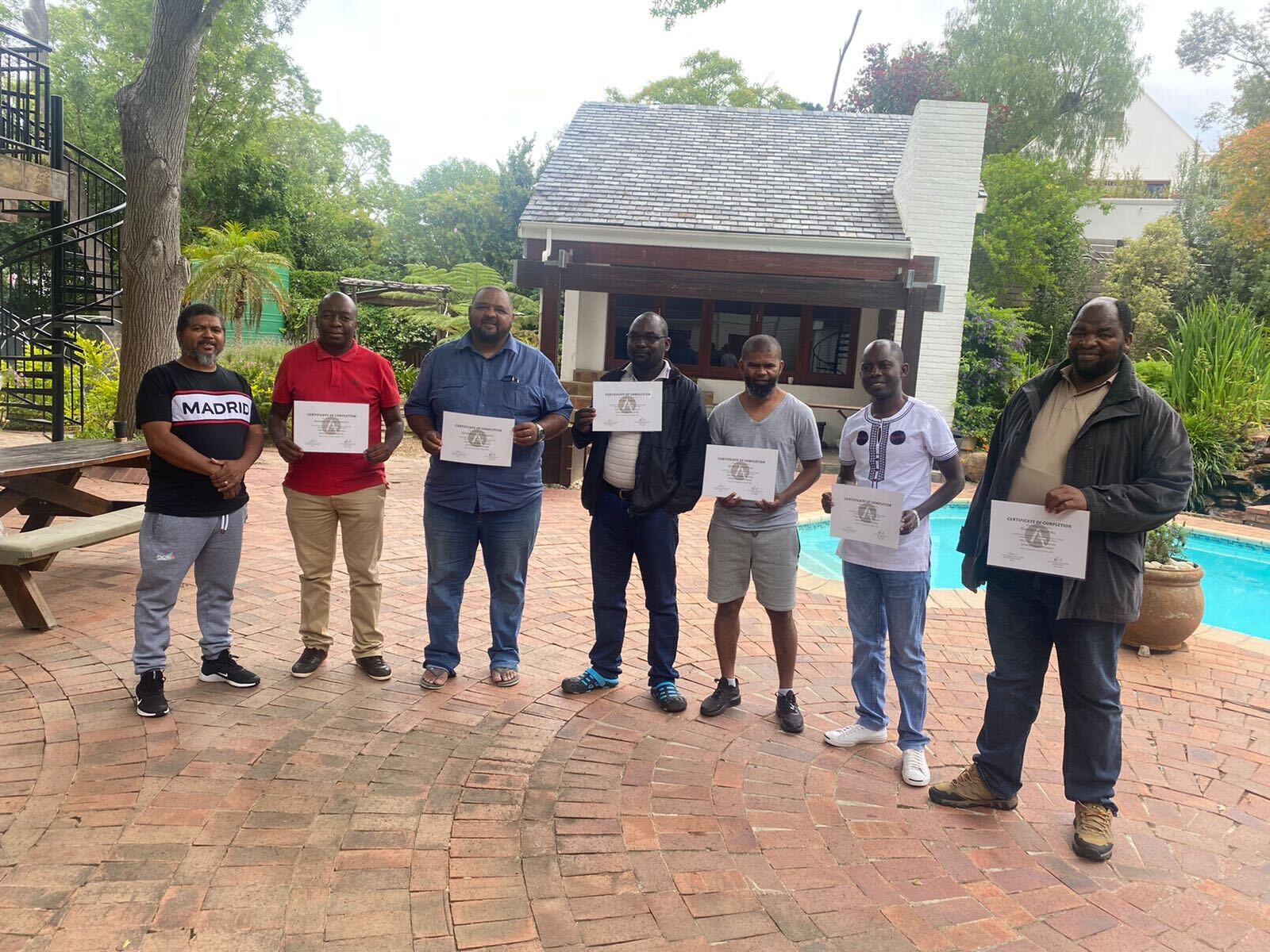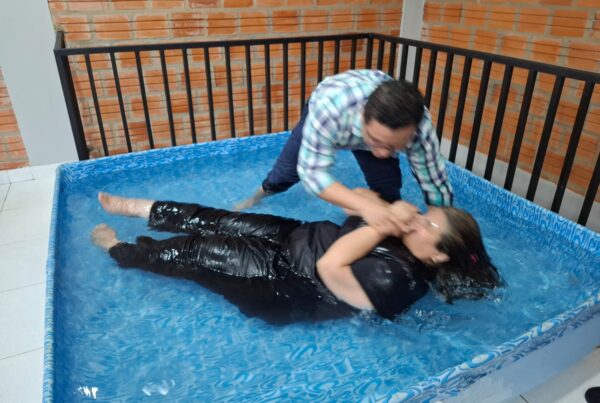Most of us can’t imagine trying to raise a family on just 50 cents a day. Yet deep poverty is the reality for one in ten people around the world. Living in poverty is not just a matter of struggling to put food on the table for your children, it’s also a matter of dignity.
Young men often have no hope of gaining meaningful employment and are easily lured into a life of addiction and crime. Too many young girls become trapped in abuse and are powerless to escape. Many prostitute themselves in order to feed the very addictions their abusers use to control them. Elderly widows go hungry and live in pain and discomfort because they have no one to care for them.
These impoverished communities are often deeply spiritual places. However, the form of spirituality they turn to is as destructive as the lifestyle in which they’ve become trapped. Self-proclaimed prophets peddle a graceless gospel that manipulates and abuses the vulnerable. Cults and animistic spiritism exert an unworldly power. The call to prayer from the mosque is often heard penetrating the still, stale air of city slums.
Whenever we consider the misery of the world’s poor, we feel utterly helpless. But the Bible reminds us that what the poor desperately need is the same thing every sin-sick person needs—to see Jesus. They need a church that preaches the life-giving gospel, that provides a space where the vulnerable and abused feel safe and accepted. A church that feeds the hungry and provides a family for widows and orphans while radiating the hope of Jesus amid great darkness. Yet it is in these hard places that you are least likely to find a gospel-preaching church. The Bible reminds us that what the poor desperately need is the same thing every sin-sick person needs—to see Jesus. Condividi il Tweet
Training Church Planters in Hard Places
Church planting in areas of deep poverty is often a lonely and exhausting work. That’s why I’m encouraged to see so many men from all over the world participate in the Church in Hard Places (CiHP) apprenticeship. It’s a two-year, non-residential training for church planters living in areas of material and gospel poverty—at no cost to them. It doesn’t require them to leave their community, and they’re trained by indigenous leaders from communities much like their own.
One participant in the CiHP apprenticeship is church planter Ken Banda. At a recent CiHP intensive in Cape Town, he described ministry in his context of Garneton, a small city within the Copperbelt province of Zambia. The levels of crime, unemployment, and illiteracy are very high, and their church building is close to a shanty-town called Zambia Compound which houses about 7,000 people. The main trade in this community is selling the traditional beer called “Kachasu,” which is brewed ethanol. There are no jobs. Youth spend their days drinking this beer, playing cards in the streets, and using drugs to buy prostitutes. 
The majority of Ken Banda’s church members live in this community. The salaries for those who do work are about $16 per month to feed families of about ten people. Ken has had to work in town to put food on the table because it’s difficult for his church to pay their pastor.
Ken has just completed his two-year apprenticeship with Acts 29 as part of the Southern Africa cohort. Along with eight others in his cohort, Ken received his completion certificate at a CiHP intensive in Cape Town last month. He said, “I took this program as a means to help me grow spiritually. The monthly reading and writing assignments have helped to shape my spiritual life. I have grown to love Jesus Christ and his church more.”
The Impact of Theological Training
I asked Ken how his time in the apprenticeship has affected his church. He said, “I started this because I had my church in mind. The books helped to shape my understanding of church life. My wife tells me my preaching has improved and members now appreciate how much I do member care. Being challenged to develop a missions strategy helped me to see what we have been lacking for so many years and I’m using this strategy right now in our church as we do church planting.” The churches of Acts 29 have a passion for the gospel to reach into the hearts of men and women trapped in brokenness and darkness. We do that best when we plant churches together. Condividi il Tweet
While I’m pleased to hear that the CiHP apprenticeship has sharpened Ken’s preaching skills and his love for the church, what excites me more is learning how this program has helped him personally. Ken said, “I have been helped so much by the brotherhood where we could share our burdens together and pray for one another. Knowing that you are not alone in this work, that there are others who are struggling the same way and we became family after two years—for me this was very helpful. It has helped me build relationships with other pastors in and around Zambia. Even after the program, we’ve continued to talk and pray for one another. What’s more, my personal walk with my Lord has grown and this has affected how I treat my wife and children.”
Acts 29’s Partnership with Planters in Hard Places
It’s one thing to provide training and books for men like Ken, but Acts 29 seeks to go further. We genuinely want to form long-term relationships as we partner together with churches in areas of deep poverty. Ken is currently pursuing assessment with Acts 29. He said, “I’m really excited about moving forward with Acts 29. I want to partner with churches of like faith and practice so we can work together to spread the gospel in this part of Africa. I would love to invite other Acts 29 churches to come to Zambia so we may create a healthy relationship. My hope is that we will see many men from Zambia be challenged and equipped to plant churches here.”
I pray Ken continues to grow as he leads a healthy church that multiplies in the hard places of Zambia. He’s one of the many Church in Hard Places apprentices doing ministry throughout the world.
The churches of Acts 29 have a passion for the gospel to reach into the hearts of men and women trapped in brokenness and darkness. We do that best when we plant churches together. Let’s redouble our commitment to this task as we pray for men like Ken and the hundreds like him who are walking alongside us in this great and glorious work.










